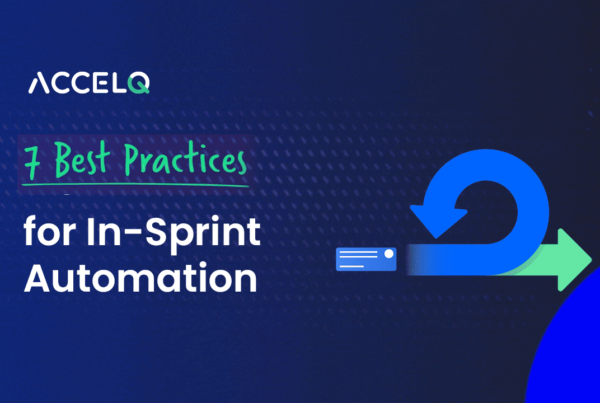MS Dynamics 365 Test Automation: Enhanced Testing Solution

Have you ever wondered why there is an increased demand for Microsoft Dynamics 365 test automation today?
The primary reason is that the platform is finding more takers globally as businesses attempt to deliver fulfilling experiences for customers to remain competitive.
The MS Dynamics service market is estimated to grow to a record USD 11.24 billion in the CRM space by 2026. As it becomes a key pillar of business growth and customer experience, the question of why test Dynamics 365 has even more relevance.
What is MS Dynamics 365 Test Automation?
MS Dynamics testing streamlines and enhances the quality of MS Dynamics 365 systems by automating the entire testing process. This includes automatically creating test data, rigorously checking all parts of the application, and reusing test components. It ensures that every version of the Dynamics 365 platform works flawlessly, supporting business growth effectively.
Naturally, several enterprise leaders will question “Why they need to ” in their minds.
Microsoft Dynamics 365 is frequently integrated with other essential systems. This complexity and scale can create risks and flaws, especially in a strongly integrated business application environment. MS Dynamics test automation guarantees these issues are recognized and fixed from the outset.
Dynamics 365 manages interactions with a company's most precious asset, its customers. Any compromise in the system's quality or reliability can harm customer relationships and company prospects, potentially driving customers to competitors. Automating the rigorous testing process ensures the platform's dependability and quality.
Benefits of MS Dynamics 365 Test Automation
- Rapid Adaptation to Dynamics 365 Updates: Automates the validation of customizations and configurations after each Dynamics 365 update, ensuring continuous compatibility and functionality without manual intervention.
- Enhanced Testing for Complex Integrations: Specifically addresses the intricate integrations within the Dynamics 365 ecosystem, ensuring seamless data flow and functionality across connected systems and modules.
- Customized Testing Scenarios: Allows detail creation, MS Dynamics 365 specific test scenarios that reflect real-world usage, ensuring that all business processes are accurately validated.
- Codeless Automation for Business Users: Empowers Dynamics 365 users with little to no coding expertise to create and manage tests, making test automation accessible to a broader range of users within the organization.
- Optimized Performance Testing: Provides tools to simulate high volumes of users and transactions, crucial for Dynamics 365 applications to ensure they can handle peak loads without performance degradation.
- Targeted Security Testing: Automates security and compliance testing specific to Dynamics 365, helping protect sensitive data and meet regulatory requirements without extensive manual effort.
- Continuous Testing and Deployment: Facilitates the implementation of CI/CD pipelines for Dynamics 365, enabling faster deployment of features and fixes with assured quality.
Best practices for testing Microsoft Dynamics 365
As explained earlier, MS Dynamics can be a complex solution from a technical perspective. But it doesn’t mean it is always hard to perform Dynamics testing seamlessly. Therefore, enterprises must follow some best practices for testing Microsoft Dynamics 365 to succeed in the journey.
Some of the key ones are:
- Leverage an intelligent automation platform that enables UI-based test automation for better results.
- Learn how to re-use test assets diligently to save more time and effort in the long run.
- Prioritize automation journeys to cover simpler processes first and then navigate more complex ones.
- Enable seamless collaboration between different stakeholders and teams that rely on the tool Dynamics 365 for their needs.
Selecting the Right MS Dynamics 365 Test Automation Tool
Integration with Dynamics 365
Ensure the tool integrates deeply with Dynamics 365, supporting standard and custom entities. It should facilitate testing across various modules like Sales, Customer Service, and Finance without extensive configuration.
Support for Dynamics 365 Updates
The tool should effortlessly handle frequent updates from Microsoft, allowing you to test new features and ensure compatibility without manual intervention.
Dynamics-Specific Testing Features
Look for features that cater specifically to Dynamics 365 testing needs, such as the ability to test business process flows, role-based testing, and data-driven testing that utilizes Dynamics 365 data structures.
Codeless Automation Capabilities
Given the business-centric nature of Dynamics 365, a tool that offers codeless automation allows business analysts and functional consultants to create and manage tests without deep technical expertise.
Performance and Load Testing
Dynamics 365 applications often support critical business processes. The selected tool should offer robust performance and load testing capabilities to simulate real-world usage scenarios and ensure the application can handle peak loads.
Security Testing Compliance
The tool should include features to test for vulnerabilities within Dynamics 365 applications, ensuring compliance with industry standards and regulations.
Collaboration and Reporting
Choose a tool that promotes collaboration between developers, testers, and business users, with comprehensive reporting features that provide insights into test results, coverage, and quality metrics.
Conclusion
The future of automated Dynamics testing looks promising, emphasizing the importance of selecting skilled personnel and advanced test automation platforms like ACCELQ. This AI-driven, codeless platform efficiently addresses all aspects of MS Dynamics test automation, offering a comprehensive solution for enterprises to manage their testing initiatives effectively.
Get in touch with us to explore more about ACCELQ and how it can help you drive the most out of your MS Dynamics implementation at low risk.
Geosley Andrades
Director, Product Evangelist at ACCELQ
Geosley is a Test Automation Evangelist and Community builder at ACCELQ. Being passionate about continuous learning, Geosley helps ACCELQ with innovative solutions to transform test automation to be simpler, more reliable, and sustainable for the real world.
Discover More
 7 Best Practices for In-Sprint Automation
7 Best Practices for In-Sprint Automation
7 Best Practices for In-Sprint Automation
 A Guide to SAP Testing and the need for test automation
A Guide to SAP Testing and the need for test automation

































